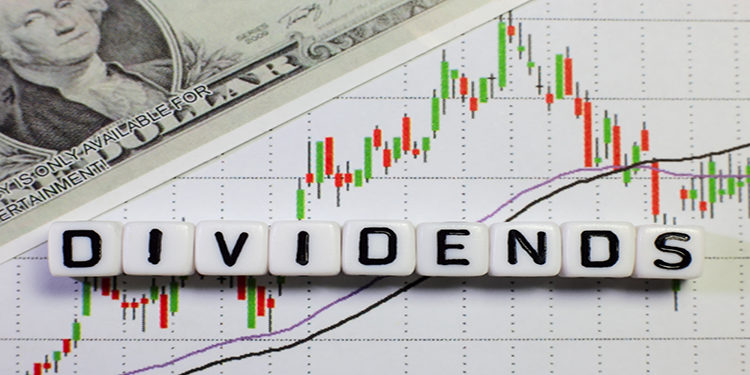It’s not too often that pharmaceutical drugs become household names, but that’s happening with medicines in the weight loss market. Brands such as Wegovy and Zepbound — the leading anti-obesity therapies — are now well known and are generating billions of dollars in annual sales. That’s why other drugmakers want to dip their toes in this lucrative and high-growth market.
AbbVie (NYSE: ABBV) is one of them. The company, best known for its work in immunology, recently made a move to enter the weight loss space. Does that make AbbVie stock a buy today?
Where to invest $1,000 right now? Our analyst team just revealed what they believe are the 10 best stocks to buy right now. Learn More »
AbbVie signs a licensing agreement
Developing therapies from scratch is risky and time-consuming. That’s why pharmaceutical giants often partner with small companies that already have candidates in early-stage studies — it helps speed up the process from their perspective. AbbVie is doing just that to join the weight loss market. The company entered into an agreement with Gubra A/S, a Danish drugmaker, to develop GUB014295, a potential weight loss therapy.
Many investigational anti-obesity treatments — and the current leaders in the field — mimic the action of the GLP-1 hormone, but that’s not GUB014295’s approach. Instead, this investigational medicine mimics the activity of two hormones: amylin and calcitonin. The former helps regulate blood sugar levels and controls satiety. The latter regulates calcium levels in the blood.
Per its agreement with Gubra A/S, AbbVie will lead the development of GUB014295. Gubra A/S received an upfront payment of $350 million and could get up to $1.9 billion in various development milestones in addition to royalties.
It’s still a long shot
Can AbbVie become a leader in the weight loss market? It’s too early to say. Novo Nordisk and Eli Lilly, the two companies behind Wegovy and Zepbound, respectively, still seem to have a hold on this therapeutic area considering their rich late-stage pipelines of potential GLP-1 therapies. Further, the number of investigational medicines in this field has ballooned in the last two years.
Being first to market matters, but so does having the most effective medicine. Also, it will still be a while before GUB014295 hits the market, that is, if it passes all the clinical and regulatory hoops on the way. So, for now, this licensing agreement should do little to sway investors’ decision to purchase shares of AbbVie.
There are other reasons to invest
Thankfully, there are many other things going AbbVie’s way. Despite losing patent exclusivity for Humira two years ago, AbbVie’s financial results remain pretty strong. In 2024, the company’s revenue increased by 3.7% to $56.3 billion. AbbVie’s adjusted earnings per share decreased by 8.9% to $10.12, but that was partly due to acquisition-related expenses. AbbVie’s two immunology medicines, Skyrizi and Rinvoq, were the stars of the show, once again.
Management continues to expect these two drugs to grow their sales at a good clip well into the next decade. The company has other growth drivers, including its Botox franchise and Venclexta, a cancer medicine. AbbVie also has a deep pipeline with dozens of drug candidates. The company’s entrance into the weight loss market helps diversify its clinical lineup. Even if GUB014295 fails, we can expect AbbVie to make other attempts to join the lucrative anti-obesity space. Whether in this area or others, the company will develop more successful medicines.
Lastly, AbbVie is an excellent dividend stock. When counting its time as a division of the medical device giant Abbott Laboratories, AbbVie has increased its payouts for 52 consecutive years. It offers a forward yield of 3.1%, and its cash payout ratio of just under 62% is reasonable. AbbVie may or may not become a leader in the weight loss market anytime soon, but its excellent dividend track record and strong underlying business make it attractive for long-term, income-seeking investors.
Don’t miss this second chance at a potentially lucrative opportunity
Ever feel like you missed the boat in buying the most successful stocks? Then you’ll want to hear this.
On rare occasions, our expert team of analysts issues a “Double Down” stock recommendation for companies that they think are about to pop. If you’re worried you’ve already missed your chance to invest, now is the best time to buy before it’s too late. And the numbers speak for themselves:
- Nvidia: if you invested $1,000 when we doubled down in 2009, you’d have $292,207!*
- Apple: if you invested $1,000 when we doubled down in 2008, you’d have $45,326!*
- Netflix: if you invested $1,000 when we doubled down in 2004, you’d have $480,568!*
Right now, we’re issuing “Double Down” alerts for three incredible companies, and there may not be another chance like this anytime soon.
Continue »
*Stock Advisor returns as of March 3, 2025
Prosper Junior Bakiny has positions in Eli Lilly and Novo Nordisk. The Motley Fool has positions in and recommends AbbVie and Abbott Laboratories. The Motley Fool recommends Novo Nordisk. The Motley Fool has a disclosure policy.




